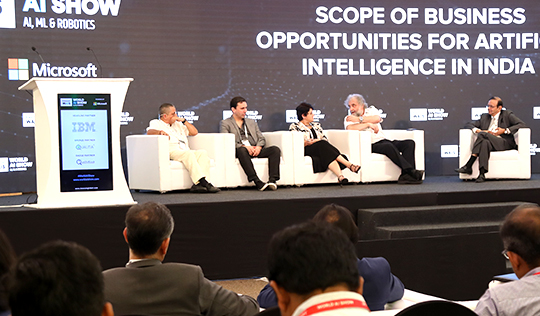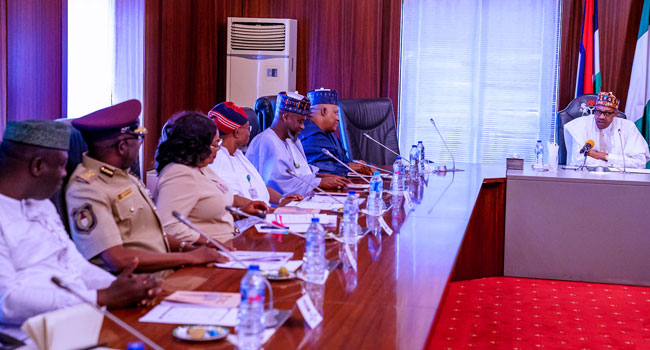It’s quite strange how a concept as much talked about as Artificial Intelligence (AI) would, in real life, be so limited to just a handful of people and startups. It’s commonplace nowadays to attend lectures and seminars where Artificial Intelligence is discussed but sadly, its actual application is so concentrated, it is almost dissipating into nothingness.
AI is forecasted to add $15 trillion to the global economy by 2030. Nigeria is hardly positioning itself to partake of this bounty.
There are far too few AI startups in Nigeria and the ones that exist hardly get any VC funding. Take for instance Indicina Technologies, an AI company that provides loan life cycle management software for banks and financial institutions.
Founded in 2017, this startup has only raised $250,000 in funding. But this is even better compared to Slatecube which is a remote internship platform for students. Founded in 2014, this startup has raised just $40,000 in funding.


Away from startups, companies and organisations who have openly indicated an application of AI to their day-to-day operations have not grown considerably too. Few enough for Founder and CEO of LinkOrion Technology, Idehen Kelly Osahen to succinctly conclude that there’s really nothing much happening in Nigeria as regards AI development.
Whether you look at this through the lens of Startups trying to build dedicated AI products (which are so few, I can almost count on my hands) or corporate organizations trying to transform digitally by considering developing its in-house strength for AI development, there is really nothing much going on in the Nigerian ecosystem as it relates to AI development.
Idehen Kelly Osahen, Founder/CEO at LinkOrion Technology
AI and the many devils it must overcome
Being an innovative technology, the problems inhibiting the adoption of AI are expectedly very traditional.
First is the lack of interest by key players in the leadership and regulatory space in Nigeria. This disinterest might actually be a good thing for now because, as we have seen, any technology the government has shown an interest in it has found a way to stifle.
Yet, according to Oxford Insights’ Government Artificial Intelligence Readiness Index 2020, Nigeria ranked 138 in the world and 25th in Africa. And for emphasis, the report captures the capacity of governments to exploit the innovative potential of AI. Nigeria’s 30.8 score is a far cry from the number 1 ranked African country, Mauritius’ with 53.86 and almost inconsequential compared to the USA’s 85.4.
Quite simply, our government isn’t anywhere near ready for AI innovations.
But perhaps the biggest problem confronting the AI space in Nigeria and indeed all of Africa is the problem of digitised data. With many if not most of the relevant public and organisational information still stacked in hard copies, it would be very difficult for AI to take off from that springboard.


Image credit: Shutterstock
Digitised data is the fuel on which Artificial Intelligence runs and to drive the technology, more focus needs to be placed on automating data.
Another traditional problem is the fear of losing certain jobs. Jobs whose functions are mostly repetitive would definitely be on the line. If you look around the industry here, many jobs are pretty much in this category. In Africa where governments take glory for job creation, losing so many jobs to ‘machines’ would hardly be described as good governance.
This makes AI quite like a bad idea.
Moreover, with the availability of cheap labour in Nigeria, many organisations still consider it cheaper to engage actual humans to carry out jobs than paying for tech. When it becomes economically viable for them, we could expect a lot to start changing.
Lessons from Mauritius
As with most things in Africa, solving the AI problem starts with a conscious and intentional government plan.
Perhaps no country in Sub-Saharan Africa has a more robust plan than Mauritius whose government released an Artificial Intelligence Strategy way back in 2018. A quick rundown of that plan is as follows:
Witnessing a drop in the manufacturing sector’s contribution to GDP from 18% to 13 % in 10 years, the strategy focused on AI and developers with solutions that will bring down costs, reduce defects and increase production speed.


Image Credit: Global Finance
The strategy strengthened the policy of granting a tax exemption of 8 years to companies involved in innovation-driven activities for intellectual property assets that are developed in Mauritius.
“Mauritius approach to AI is fantastic… They have a clear strategy as to what they want to achieve. They are also bringing the private sector and academia with them. They have a council with all of these sectors on them. They are investing in the skills and they are thinking about how that can be transferred back into the industry. That’s amazing and that’s the perfect playbook,”
Richard Stirling, CEO of Oxford Insights
With over 500,000 vehicles for its 1.2 million people, there’s nearly a car for every 2 people. This means there’s a transport congestion problem. As of last count, there are 11.8 million cars for 200 million Nigerians. That’s a car for every 16 people. The country thus planned to introduce AI to help predict traffic problems.
Mauritius is an ocean economy, pretty much like Nigeria. The plan, therefore, focused on the maritime internet of things, unlocking the blue biotechnology, developing smart ports, maritime efficiency, wisdom navigation, deep-sea exploration and Digital Ocean Towards Intelligence.
But most importantly, all these won’t be possible without digitisation of data and converting same to machine-readable formats such as XLS, CSV, JSON and XML. These are the formats for creating algorithms through which AI could function.
While it’s still too early to assess the impact of the Mauritius AI plan as it is a long-term plan and the pandemic practically took out the whole of 2020, it is important to note that the country which ranked 3rd in Africa and 60th in the world (2019) found itself 1st in Africa and 45th in the world by 2020. This shows the AI landscape has greatly improved in one short year.
Experts in the country are very optimistic about its success. Dr Oomesh Gukhool, Senior Lecturer at the University of Mauritius believes it will have a huge impact in the areas of productivity in manufacturing, transportation, the building of smart cities, efficient governance and becoming a tech hub.


Image credit: Mauritius World AI Show
Indeed the huge promise in this space has seen the influx of global new technology companies. One of them is NeuroMem Technologies which launched in 2019. Speaking on its presence in the Island country, NeuroMem CEO, Professor Pierre Brunswick said:
“We are very pleased to announce our presence in Mauritius and happy to support the country’s vision for the future. Our mandate is to help the country enhance its AI ecosystem through attracting the right international players and talent to educate, train, and help Mauritian entrepreneurs set up a robust AI ecosystem that could potentially serve not only Mauritius but sub-Saharan Africa.”
Due to the impressive strides the country has made in a short time, the World AI Show was held in the country last year. In attendance were high-level delegates from Huawei, Spark Cognition, USA, The United Nations and Nadia Thalmann creator of the world’s most human-like robot.
Bringing it home…
Nigeria shares a lot of similarities with Mauritius especially in the areas of manufacturing, ocean economy and transport. And with the AI plan, Mauritius has shown a clear and workable plan towards innovation in its vital sectors.
A look at the Government Readiness Report for 2019 and 2020 shows Nigeria dropped from 16 in Africa and 107 in the world (2019) to 25 in Africa and 138 in the world (2020). This is a clear indication that the rest of the world and Africa is leaving the country behind. Thus, the Nigerian government seriously needs to develop an Artificial Intelligent roadmap ASAP.


It’s also imperative that the tech space started taking organisations and institutions that focus on AI and related technology very seriously. Institutions like Data Science Nigeria and The University of Lagos AI Hub should be encouraged and supported.
Also, there’s a need for investment in AI startups. This won’t only help them develop solutions tailored for Nigerian problems, it would also crash the cost of these solutions. If these solutions become cheaper than hiring people, organisations would naturally be inclined to pivot towards them. However, such investments would be long-term investments because a look at the space tells you in a jiffy there won’t be any instant impact.
Nigeria still has a long way to go in Artificial Intelligence and other advanced technologies shaping the global marketplace. But with the right government policies in place and a drive to digitise data, the country could define itself as the AI capital of Africa.
Featured Image Credit: Forbes






